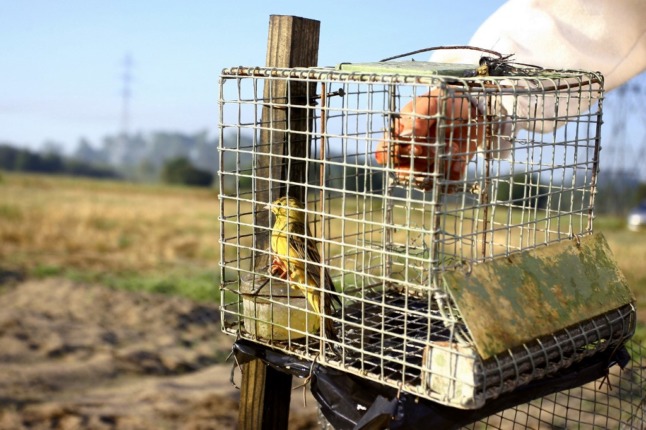The techniques banned in the new ruling by the State Council included practices popular in the southwest of France and the Ardennes region of the east of the country, such as hunting with nets or bird cages.
Its ruling revoked exemptions granted by the government to allow the hunting of birds such as lapwings, golden plovers, skylarks, thrushes and blackbirds after a 2009 EU directive that banned the mass hunting of birds irrespective of species.
It said in its ruling that the government had not proven that such techniques were necessary and the “idea alone of preserving so-called ‘traditional’ methods is not enough to authorise them”.
The State Council’s previous ruling in June came after the EU Court of Justice said in March that using glue traps caused “irreparable harm” to the thrushes and blackbirds that are caught.
READ ALSO: France bans glue trapping of birds after EU court ruling
Activists say that 150,000 birds die annually in France from non-selective hunting techniques such as glue traps and nets at a time when Europe’s bird population is in free-fall.
The League for the Protection of Birds (LPO), one of the groups that brought the complaint, said it was time for the government to formally outlaw practices that “come from another age”.
“While biodiversity is collapsing and with it bird populations, France had to be pushed into a corner by the threat of an exemplary condemnation by the EU Court of Justice,” said its president Allain Bougrain-Dubourg.
The other NGO behind the complaint, One Voice, said that 100,000 birds per year were being killed as a result of the exemptions outlawed in the judgement, not including those birds killed accidentally. “It’s an immense victory for birds,” it said.
France’s National Federation of Hunters however said the ruling was “devoid of the slightest serious basis” and vowed to explore all further legal avenues.
“For us, traditional hunts are the very essence of our passion for hunting and will always be at the heart of the defence of our hunting practices,” said its president Willy Schraen.



 Please whitelist us to continue reading.
Please whitelist us to continue reading.
Finally. Though I’m sure local hunters will continue to do it illegally. But at least now it will be illegal! Victory for the birds and common sense in this era of ecological collapse.